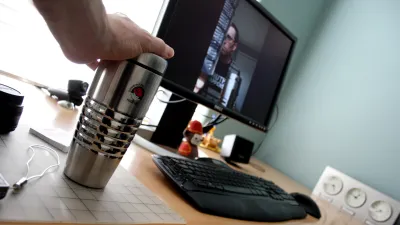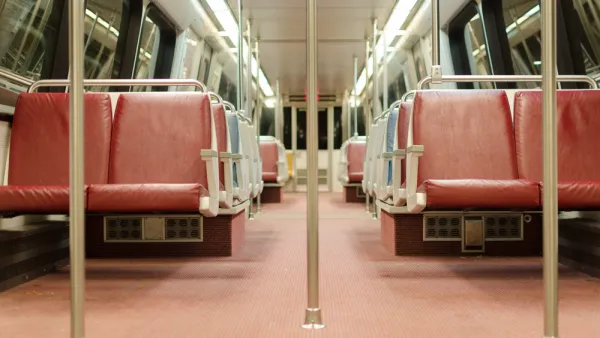In a pattern evident in communities all over the country, U.S. Census data shows more Americans are working from home. Researchers from the Brookings Institution are hoping that planners have noticed the trend.

"Over time, though, the American commute is shifting in increasingly novel ways, especially at the metropolitan level. Going back to 2000, many workers are opting out of traditional modes of transport like cars and switching to other modes," report Joseph Kane and Adie Tomer.
The most compelling evidence of the evolution of commute patterns, according to Kane and Tomer, is the "continued surge in remote working."
"From 2000 to 2014, nearly 2.4 million more people—or 13 percent of all new commuters—are working at home to bring their national total to 6.5 million. Moreover, the share of workers at home has risen from 3.2 percent to 4.5 percent, surpassing the rate of growth in all other commuting categories and building off a series of emerging work patterns in the public and private sector."
The post goes on to provide examples of some of the other ways commuting has changed in recent years, before concluding with an appeal to transportation and land use planners to take the shift into account.
FULL STORY: Since 2000, American commuters more likely to work from home or use alternate modes

Analysis: Cybertruck Fatality Rate Far Exceeds That of Ford Pinto
The Tesla Cybertruck was recalled seven times last year.

National Parks Layoffs Will Cause Communities to Lose Billions
Thousands of essential park workers were laid off this week, just before the busy spring break season.

Retro-silient?: America’s First “Eco-burb,” The Woodlands Turns 50
A master-planned community north of Houston offers lessons on green infrastructure and resilient design, but falls short of its founder’s lofty affordability and walkability goals.

Test News Post 1
This is a summary

Analysis: Cybertruck Fatality Rate Far Exceeds That of Ford Pinto
The Tesla Cybertruck was recalled seven times last year.

Test News Headline 46
Test for the image on the front page.
Urban Design for Planners 1: Software Tools
This six-course series explores essential urban design concepts using open source software and equips planners with the tools they need to participate fully in the urban design process.
Planning for Universal Design
Learn the tools for implementing Universal Design in planning regulations.
EMC Planning Group, Inc.
Planetizen
Planetizen
Mpact (formerly Rail~Volution)
Great Falls Development Authority, Inc.
HUDs Office of Policy Development and Research
NYU Wagner Graduate School of Public Service




























